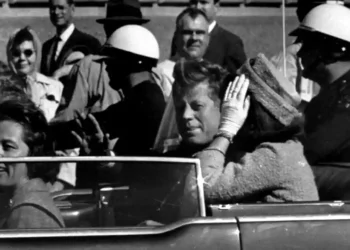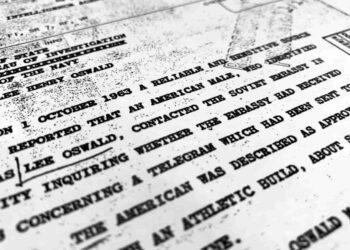John Stonehouse: The Politician Who Faked His Own Death and Lived Twice
In a saga that seems straight out of fiction, British MP John Stonehouse faked his own death in 1974, leaving behind a trail of intrigue and scandal. Here’s how the incredible story unfolded:
The Disappearance in Miami
On November 20, 1974, John Stonehouse’s clothes were discovered on a beach in Miami. It appeared he had drowned while swimming, but suspicions arose when he was later found alive in Melbourne, Australia, on Christmas Eve. His elaborate ruse involved adopting the identities of two deceased men, Joseph Arthur Markham and Donald Clive Mildoon, to flee financial troubles, political fallout, and personal scandals.
Stonehouse staged his disappearance while facing financial ruin, accusations of espionage, and public scrutiny over an extramarital affair with his secretary, Sheila Buckley. His plan included transferring large sums of money from his businesses into foreign bank accounts under his new identities.
A Troubled Career
Once a promising politician, Stonehouse’s career peaked as Postmaster General, where he introduced first- and second-class postage stamps. However, his political reputation crumbled following allegations of espionage for Czechoslovakia during the Cold War—a charge he vehemently denied.
Disillusioned after losing his seat in 1970, Stonehouse turned to business ventures that eventually spiraled into fraud and financial woes. His involvement in the British Bangladesh Trust added further controversy, leading to investigations and bad publicity.
Capture and Confession
Stonehouse’s new life in Australia began to unravel when Melbourne police, searching for the missing aristocrat Lord Lucan, linked him to suspicious bank activities. On December 24, 1974, Stonehouse was apprehended. In a taped phone call to his wife, Barbara, he confessed to the deception, stating, “I have been deceiving you… I’m sorry about that, but in a sense, I’m glad it’s all over.”
Despite his dramatic confession, Stonehouse insisted his actions were driven by a “divided personality” caused by immense stress. In a later interview, he portrayed his disappearance as a “fact-finding mission” about his inner self.
Legal Consequences and Fallout
Deported to the UK in 1975, Stonehouse faced a 68-day trial and was convicted of theft, fraud, and deception. He was sentenced to seven years in prison but served only three due to health issues. His wife divorced him during his imprisonment, and he later married his secretary, Sheila Buckley.
Legacy and Espionage Claims
Stonehouse passed away in 1988, leaving lingering questions about his life. While he denied allegations of espionage, some evidence, including released Czechoslovak intelligence files, suggests he may have acted as a spy. His daughter, Julia, maintains his innocence, publishing a book in his defense in 2021.
This bizarre tale of deception, scandal, and reinvention remains one of the most extraordinary episodes in British political history.
This article was rewritten by JournosNews.com based on verified reporting from trusted sources. The content has been independently reviewed, fact-checked, and edited for accuracy, neutrality, tone, and global readability in accordance with Google News and AdSense standards.
All opinions, quotes, or statements from contributors, experts, or sourced organizations do not necessarily reflect the views of JournosNews.com. JournosNews.com maintains full editorial independence from any external funders, sponsors, or organizations.
Stay informed with JournosNews.com — your trusted source for verified global reporting and in-depth analysis. Follow us on Google News, BlueSky, and X for real-time updates.














